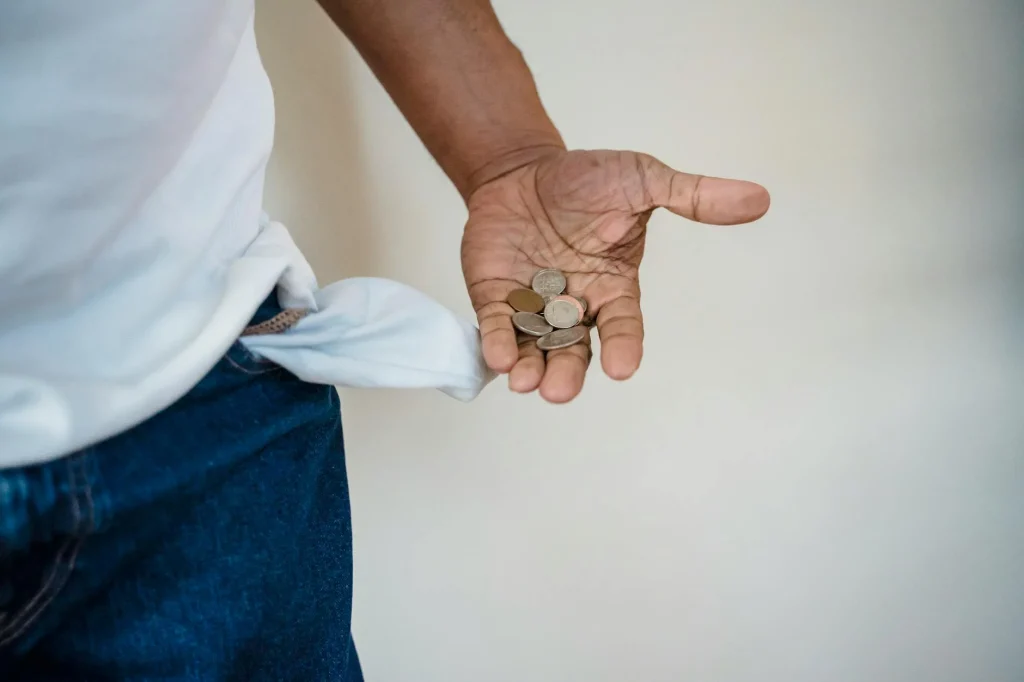
Image source: pexels.com
No one sets out to file for bankruptcy. For most people, it’s a last resort after exhausting every other option. Yet, going through bankruptcy can be a turning point that reshapes financial habits for life. It’s a wake-up call that forces you to look at money differently. Many people only realize what they should have done after bankruptcy is in the rearview mirror. If you’re hoping to avoid that hard road, it pays to learn these financial lessons without the pain of bankruptcy yourself.
1. The True Cost of Living Beyond Your Means
One of the most common causes of bankruptcy is spending more than you earn. It seems harmless at first—a new credit card here, a loan there. But debt snowballs quickly. After bankruptcy, people often look back and see how small decisions added up. They realize that living beyond your means doesn’t just lead to financial stress; it can destroy your credit, limit your choices, and keep you trapped in a cycle of borrowing.
Learning to live within your means is essential. This means tracking your expenses, setting realistic budgets, and saying no to things you can’t afford. Bankruptcy forces you to confront the reality that overspending offers only temporary satisfaction, but long-term consequences.
2. The Importance of an Emergency Fund
Many people who file for bankruptcy never had a financial safety net. Unexpected expenses—a medical emergency, job loss, or car repair—can quickly lead to overwhelming debt. After bankruptcy, the value of an emergency fund becomes crystal clear. It’s not just a best practice; it’s a necessity to prevent history from repeating.
Building an emergency fund, even if it’s just a few hundred dollars to start, can make a huge difference. It provides a buffer against the unexpected and helps you avoid relying on credit cards in a crisis. This is one of the most practical financial lessons that only bankruptcy seems to drive home for many.
3. How Credit Really Works
Before bankruptcy, it’s easy to misunderstand how credit functions. Many people only learn after the fact that maxing out credit cards, making late payments, or carrying high balances can tank their credit score. Bankruptcy can stay on your credit report for up to ten years, making it difficult to get loans, rent an apartment, or even land certain jobs.
After bankruptcy, rebuilding credit becomes a priority. People learn to check their credit reports regularly, pay bills on time, and use secured credit cards responsibly. They also realize that good credit isn’t just about access to loans—it’s about financial freedom and opportunity.
4. The Power of Saying No
It’s hard to say no to kids, to friends, or even to yourself. Many people end up in bankruptcy because they couldn’t refuse spending temptations or requests for money. After going through bankruptcy, people often develop a stronger sense of boundaries. They learn that it’s okay to decline invitations or purchases that don’t fit their budget.
Saying no is a skill that gets easier with practice. It’s not about deprivation; it’s about protecting your financial health. This lesson is one that can only be fully appreciated after experiencing the consequences of always saying yes.
5. The Need for Financial Education
Financial literacy isn’t taught in most schools, and many adults feel lost when it comes to money management. Bankruptcy exposes the gaps in your financial knowledge. Whether it’s not understanding interest rates, how minimum payments work, or the risks of co-signing a loan, these gaps can be costly.
After bankruptcy, many people seek out resources to improve their financial skills. This commitment to ongoing education helps them avoid old mistakes and build a stronger economic future.
6. The Value of Planning for the Future
Bankruptcy can make you feel like the future is out of reach. But ironically, it also teaches the value of planning ahead. People realize that having financial goals—like saving for retirement, buying a home, or paying off debt—can help guide daily decisions. Without a plan, it’s easy to drift into old habits or let circumstances dictate your choices.
After bankruptcy, setting clear, realistic goals becomes a priority. Whether it’s automating savings or creating a debt repayment plan, planning for the future is one of the most powerful financial lessons bankruptcy offers.
Turning Hard Lessons Into a Better Financial Life
The financial lessons only bankruptcy can teach are hard-earned, but they don’t have to be wasted. By living within your means, building an emergency fund, understanding credit, setting boundaries, seeking financial education, and planning for the future, you can create a healthier relationship with money. Bankruptcy doesn’t have to define your financial story; it can be the chapter that leads to lasting change.
Have you or someone you know learned important financial lessons after bankruptcy? Share your experience or tips in the comments below!
What to Read Next…
- 5 Things That Instantly Decrease Your Credit Score By 50 Points
- The Benefits Of Taking Personal Loans And Their Impact On Credit Scores
- 5 Emergency Repairs That Could Force You Into Debt Overnight
- Are These 6 Helpful Budget Tips Actually Ruining Your Finances
- 10 Money Mistakes People Make After Losing A Spouse

Travis Campbell is a digital marketer/developer with over 10 years of experience and a writer for over 6 years. He holds a degree in E-commerce and likes to share life advice he’s learned over the years. Travis loves spending time on the golf course or at the gym when he’s not working.
Leave a Reply